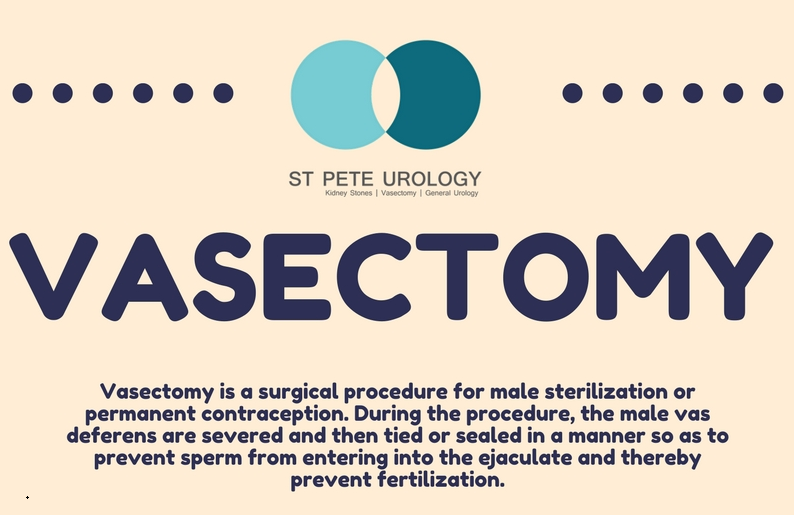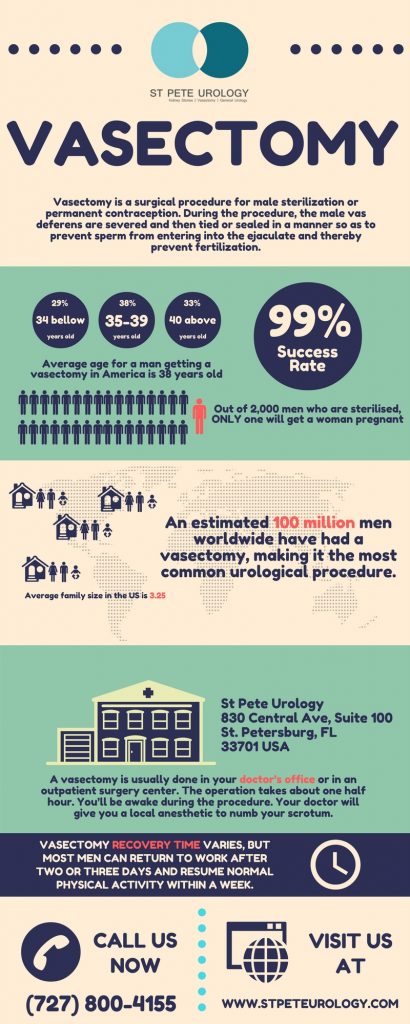Vasectomy is a popular and effective method of family planning. It carries less risk than the equivalent of tubal ligation in women, and it provides greater efficacy. In fact, it stands out as one of the best and safest forms of contraception provided that the patient fully understands potential risks associated with the procedure. For example, a common concern with vasectomy is that a man might later change his mind about wanting to have children. Although vasectomy can be reversed, there is usually no guarantee that the reversal will be a success and the reversal surgery is also more complicated and expensive. Therefore, before you opt for a vasectomy, be certain that you do not want to father a child in the future.
So what risks are associated with a vasectomy? For most men, vasectomy does not cause noticeable side effects and rarely causes complications. Nevertheless, while vasectomy is safe and highly effective, some problems might occur after surgery and over time.
Surgical Risks
Following the procedure, most men experience mild pain, discomfort, bruising and mild swelling, all of which disappear within two weeks. However, certain problems may require the attention of a health care provider. Bleeding or hematoma (blood clot) inside the scrotum or bleeding under the skin may cause painful swelling and requires urgent medical attention. As with any surgery, the area operated on may become infected. Scrotal redness, tenderness and fever are signs of infection.
Delayed Risks
The risk of delayed problems is quite small, but they do occur. One such possibility is the presence of a granuloma (lump in the scrotum) formed from leakage of sperm out of the vas deferens and into the tissue. Another is post-vasectomy pain syndrome, a chronic pain in the testicles that occurs in a small percentage of men. A spermatocele is an abnormal cyst that develops in the epididymis and a hydrocele is a fluid-filled sac that may form around the testicle and cause swelling in the scrotum.
Vasectomy failure, although extremely rare, is known to happen. There is a 1-in-1000 risk that a vasectomy will fail. If this occurs, pregnancy may occur and a repeat procedure may be necessary.
Some men have certain unfounded concerns about vasectomies. It is important to know that a vasectomy will not affect sexual performance or cause permanent damage or severe pain to your sexual organs, nor will it increase your risk of testicular or prostate cancer or heart disease.
At St Pete Urology in St Petersburg, Florida we have offered vasectomy services for many years. We have a team of experienced, board-certified urologists and medical staff to guarantee a successful procedure. At St Pete Urology, you will get an initial consultation, treatment, recovery advice and aftercare assistance 24/7. For more information, visit St Pete Urology at our clinic or online.





